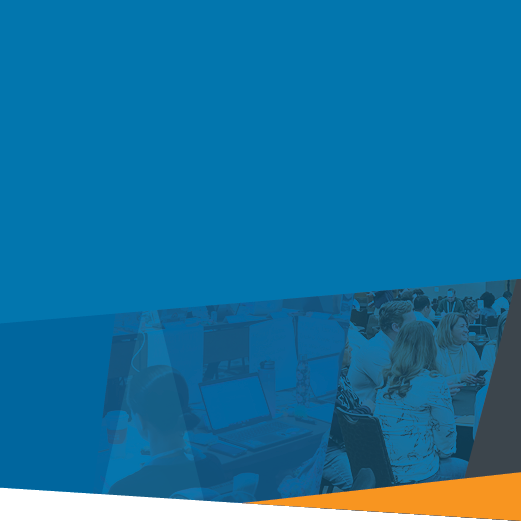

As an academic administrator, culture starts with you, and you set the tone for your teachers. A predictable and supportive environment is essential for faculty to have the capacity to embrace inevitable changes with fortitude and enthusiasm. ISM Consultants help you take your leadership to the next level and enhance your school's culture.
See below for examples of sessions our Consultants have presented on related to this topic.
Barbara Beachley
ISM Senior Consultant
Foster a Positive Faculty Culture with a Growth and Evaluation Framework Teachers Love
Teachers need and deserve a predictable and supportive environment in which they can grow and thrive. Learn about this mission-driven growth and evaluation framework that administrators call “eminently doable” and faculty embrace for its treatment of teachers as professionals. Separating growth from evaluation resolves the challenges educators have faced with faculty evaluation, allowing energy and emphasis to be placed on personalized, teacher-directed growth. Appropriate for academic administrators, department chairs, and teachers at all levels.
Casey Bell, Ed.D., IAP-L
ISM Consultant
Parents Gone Wild: Managing Parent Expectations and Bad Behavior
The expectations of private-independent school parents are higher than ever. In fact, many parents now have a “transactional” mentality when it comes to their relationship with your school, administrators, and teachers. Parent expectations are higher than ever and when those expectations are not met, the response is often not in alignment with many of our community values. In this session, we will discuss ways to begin to set expectations at the beginning of the admission process and identify opportunities for you to bring practical application back to your school.
Mike Gwaltney
ISM Consultant, Academic Leadership Department Head, and Director of Online Learning
What Role Should ChatGPT / AI Play in the Independent School Classroom?
This session will explore the ways in which private-independent schools can leverage ChatGPT, a cutting-edge language model, for teaching and learning. In this session, we'll discuss how ChatGPT and AI can be used to create personalized learning experiences and improve student engagement.
Empowering Department Chairs & Deans as Proactive Leaders and Effective Managers
Department Chairs and Deans play crucial leadership and management roles,, bridging the gap between a school’s senior administrators and the teachers who deliver the school’s mission. At their best, Chairs and Deans help to ensure a positive, growth-focused school culture by supporting teachers and students. Participants in this workshop will learn the fundamentals of leading and managing in an independent school, and will be equipped to provide the predictability and support both teachers and students need. Chairs and Deans will leave the workshop empowered to be more effective managers and proactive leaders.
Terry Moore, BCP-E
ISM Senior Executive Consultant, Governance & Operations Department Head, Editor-in-Chief of Ideas & Perspectives
Faculty Compensation: Beginning to Manage the Teacher Shortage
In this workshop, you will learn about the developing teacher shortage and how to help your school prepare for a tight labor market. We’ll explore what faculty are looking for in teaching jobs and ISM’s latest recommendations for creating a compensation strategy based on teacher expectations.
Shannan Schuster, Ed.D.
ISM Consultant and Executive Coach
Navigating the Shifting Workforce in Schools
As schools face a looming teacher shortage and the growing demand for flexible work schedules, they may need to rethink how to attract and hire the right people. School leaders know that hiring the right “people on the bus” makes their jobs easier and optimizes the student experience. However, recruiting the right people has become more challenging with the decline in qualified candidates.
Rethinking Hiring: Systems To Yield More Qualified, Mission-Driven Employees
Hiring is THE most important role a leader has in their organization. As Jim Collins stated in his book Good to Great, it is about who is on the bus and what seat they occupy. Unfortunately, in independent schools, the people often charged with hiring come up through the academic ranks and lack formal training and research-based strategies to attract, interview, and hire the best candidates for their schools. This workshop focuses on developing and implementing a mission-informed hiring process that strengthens the diversity of applications and mitigates implicit bias through data-informed assessment.
Bryan Smyth, Ph.D.
ISM Senior Consultant and Director of Research
The State of Student Well-Being in 2023: Research Findings and Recommendations
In this presentation, Dr. Bryan Smyth—ISM Senior Consultant and Director of Research—will introduce a comprehensive profile of student well-being, convey ISM’s research findings regarding the well-being of private school students, and offer important recommendations for schools for the future.
Andrew Taylor, Ed.D.
ISM Consultant and Executive Coach
Managing Complex Change Independent Schools
Regardless of your title or role at your school, if you have ever been directly or peripherally involved in a new initiative you have experienced the perils of change. Schools tend to be change adverse and for good reason—we applaud it in principle but oppose it in practice, resisting modifications in even the most mundane daily routines. We need to take a broad view of change and learn how to manage complex organizational change in our schools.
Promoting Student Well-Being and Durable Learning in Independent Schools
Student well-being and creating and durable learning are hot topics in the education field. But where do you begin, practically and tangibly when trying to incorporate both into your school? We have to start by understanding the science behind how our brains function and how stress impacts durable learning. We need to explore how our schedules and corresponding learning environments can be leveraged to create the best conditions for learning.